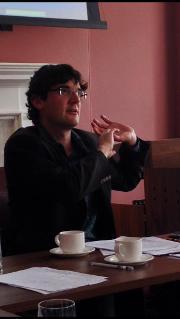An Interview with Thomas Shakespeare (Beyond the Ivory Tower Series)
This is the latest interview in our Beyond the Ivory Tower series, a conversation between Diana Popescu and Tom Shakespeare. Tom Shakespeare (CBE, FBA) is a Professor of Disability Research at the London School of Hygiene and Tropical Medicine. He was trained in social and political sciences at Cambridge University but his work combines disability studies with sociology, social policy, and sexuality studies. His books include The Sexual Politics of Disability (1996); Disability Rights and Wrongs (2006; 2014); Disability – the Basics (2017). He was a member of Arts Council, England (2003-2008), a technical officer at the World Health Organisation where he co-edited the World Report on Disability (2008-2013), and a member of the Nuffield Council on Bioethics (2013-2019). He is currently chair of Light for the World – UK, and vice-chair of Light for the World International.









